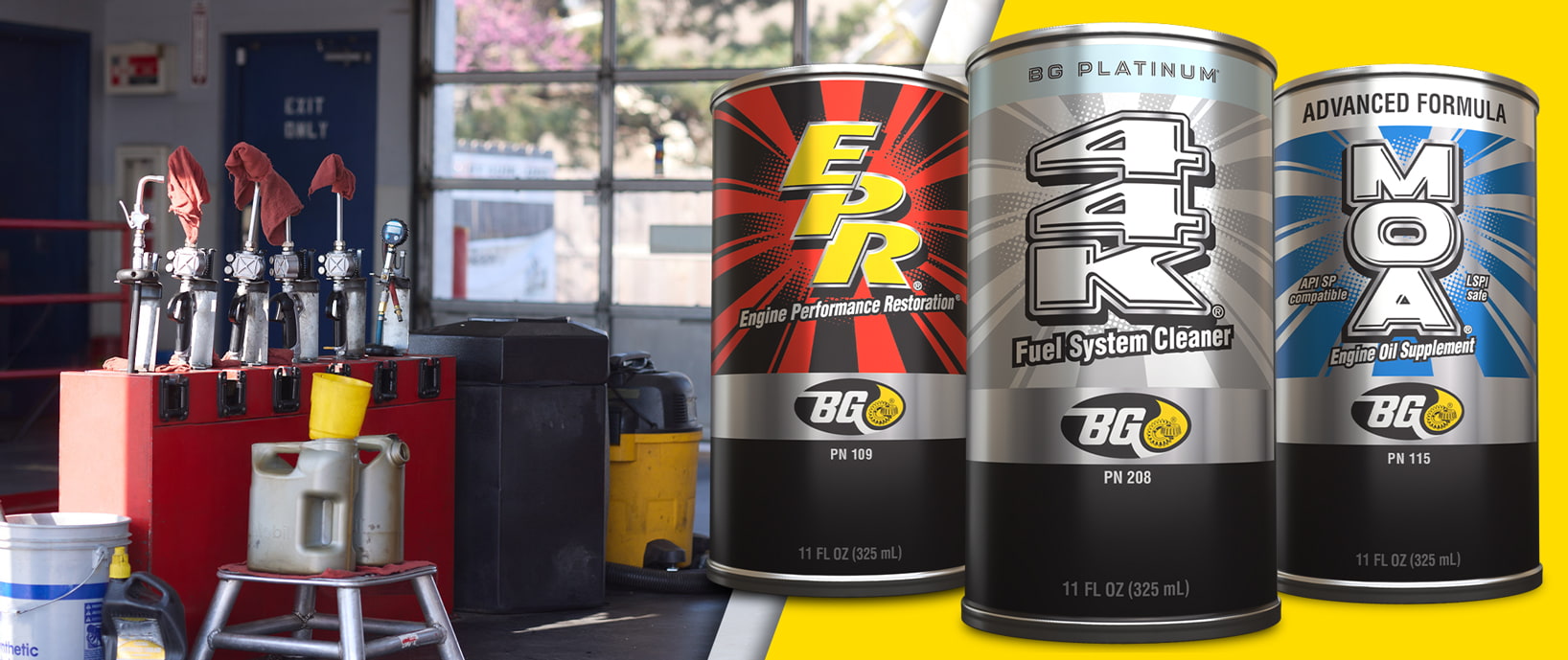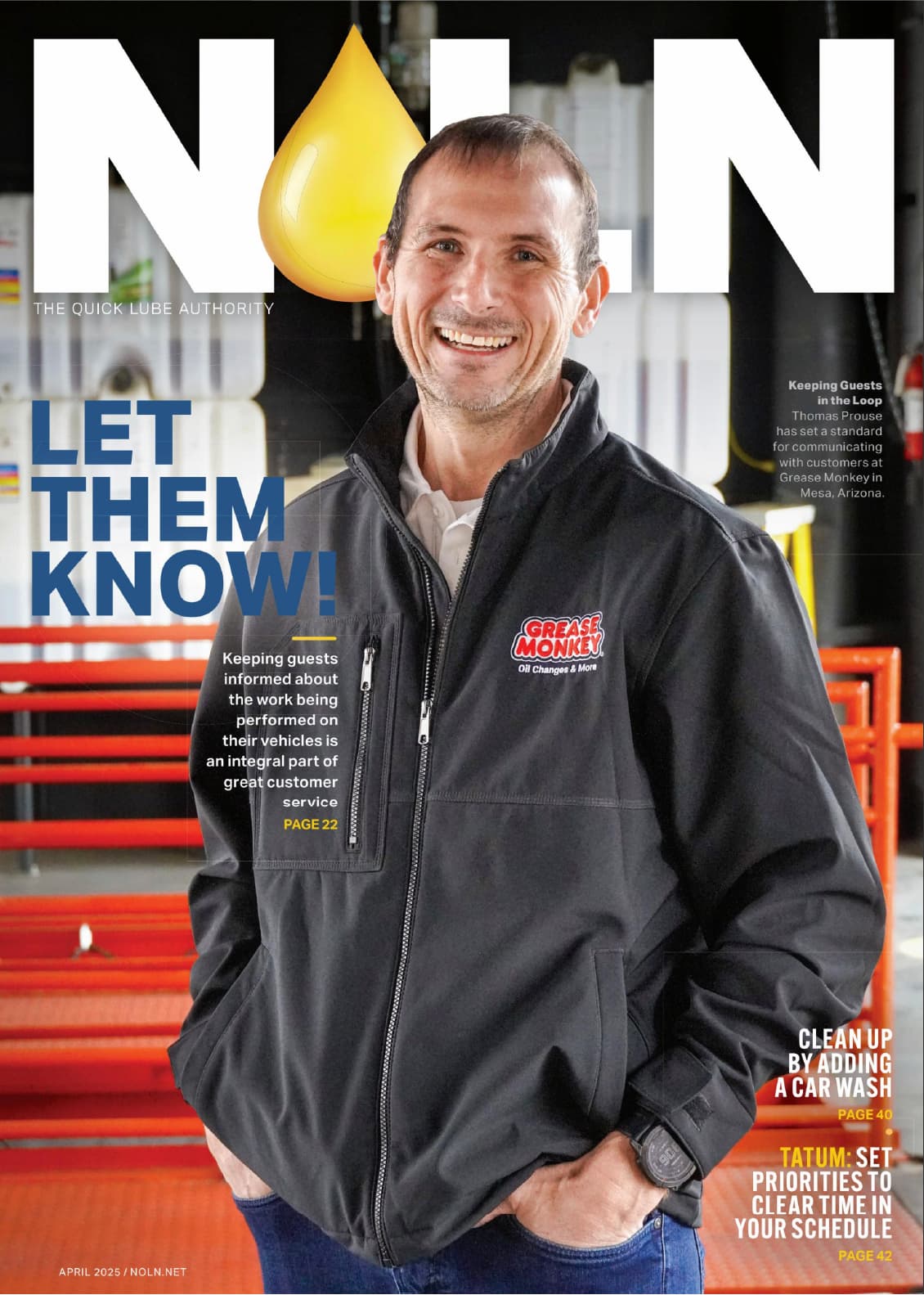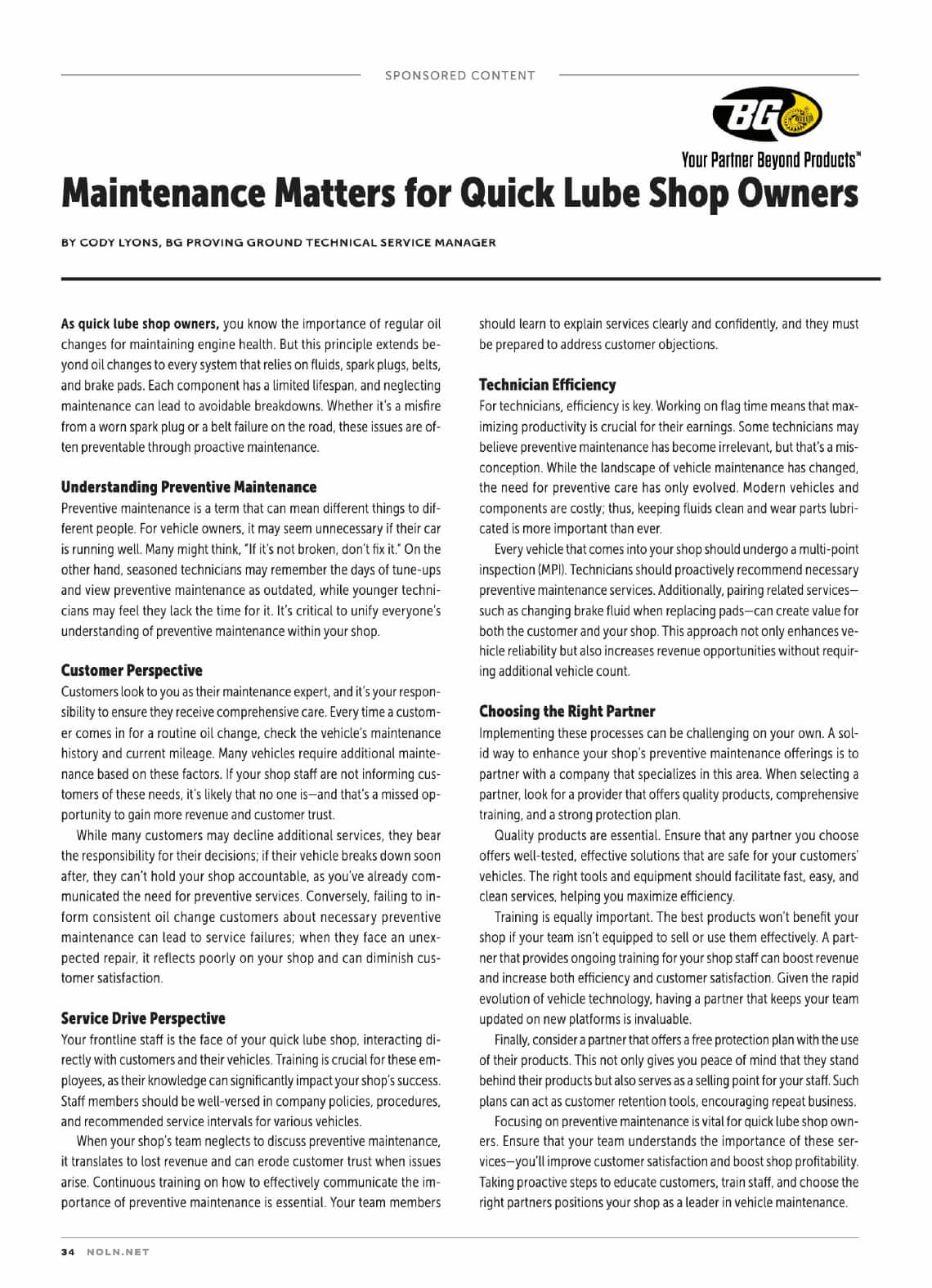Cody Lyons | BG Proving Ground Technical Service Manager
As quick lube shop owners, you know the importance of regular oil changes for maintaining engine health. But this principle extends beyond oil changes to every system that relies on fluids, spark plugs, belts, and brake pads. Each component has a limited lifespan, and neglecting maintenance can lead to avoidable breakdowns. Whether it’s a misfire from a worn spark plug or a belt failure on the road, these issues are often preventable through proactive maintenance.
Understanding Preventive Maintenance
Preventive maintenance is a term that can mean different things to different people. For vehicle owners, it may seem unnecessary if their car is running well. Many might think, “If it’s not broken, don’t fix it.” On the other hand, seasoned technicians may remember the days of tune-ups and view preventive maintenance as outdated, while younger technicians may feel they lack the time for it. It’s critical to unify everyone’s understanding of preventive maintenance within your shop.
Customer Perspective
Customers look to you as their maintenance expert, and it’s your responsibility to ensure they receive comprehensive care. Every time a customer comes in for a routine oil change, check the vehicle’s maintenance history and current mileage. Many vehicles require additional maintenance based on these factors. If your shop staff are not informing customers of these needs, it’s likely that no one is—and that’s a missed opportunity to gain more revenue and customer trust.
While many customers may decline additional services, they bear the responsibility for their decisions; if their vehicle breaks down soon after, they can’t hold your shop accountable, as you’ve already communicated the need for preventive services. Conversely, failing to inform consistent oil change customers about necessary preventive maintenance can lead to service failures; when they face an unexpected repair, it reflects poorly on your shop and can diminish customer satisfaction.
Service Drive Perspective
Your frontline staff is the face of your quick lube shop, interacting directly with customers and their vehicles. Training is crucial for these employees, as their knowledge can significantly impact your shop’s success. Staff members should be well-versed in company policies, procedures, and recommended service intervals for various vehicles.
When your shop’s team neglects to discuss preventive maintenance, it translates to lost revenue and can erode customer trust when issues arise. Continuous training on how to effectively communicate the importance of preventive maintenance is essential. Your team members should learn to explain services clearly and confidently, and they must be prepared to address customer objections.
Technician Efficiency

For technicians, efficiency is key. Working on flag time means that maximizing productivity is crucial for their earnings. Some technicians may believe preventive maintenance has become irrelevant, but that’s a misconception. While the landscape of vehicle maintenance has changed, the need for preventive care has only evolved. Modern vehicles and components are costly; thus, keeping fluids clean and wear parts lubricated is more important than ever.
Every vehicle that comes into your shop should undergo a multi-point inspection (MPI). Technicians should proactively recommend necessary preventive maintenance services. Additionally, pairing related services—such as changing brake fluid when replacing pads—can create value for both the customer and your shop. This approach not only enhances vehicle reliability but also increases revenue opportunities without requiring additional vehicle count.
Choosing the Right Partner
 Implementing these processes can be challenging on your own. A solid way to enhance your shop’s preventive maintenance offerings is to partner with a company that specializes in this area. When selecting a partner, look for a provider that offers quality products, comprehensive training, and a strong protection plan.
Implementing these processes can be challenging on your own. A solid way to enhance your shop’s preventive maintenance offerings is to partner with a company that specializes in this area. When selecting a partner, look for a provider that offers quality products, comprehensive training, and a strong protection plan.
Quality products are essential. Ensure that any partner you choose offers well-tested, effective solutions that are safe for your customers’ vehicles. The right tools and equipment should facilitate fast, easy, and clean services, helping you maximize efficiency.
Training is equally important. The best products won’t benefit your shop if your team isn’t equipped to sell or use them effectively. A partner that provides ongoing training for your shop staff can boost revenue and increase both efficiency and customer satisfaction. Given the rapid evolution of vehicle technology, having a partner that keeps your team updated on new platforms is invaluable.
Finally, consider a partner that offers a free protection plan with the use of their products. This not only gives you peace of mind that they stand behind their products but also serves as a selling point for your staff. Such plans can act as customer retention tools, encouraging repeat business.
Focusing on preventive maintenance is vital for quick lube shop owners. Ensure that your team understands the importance of these services—you’ll improve customer satisfaction and boost shop profitability. Taking proactive steps to educate customers, train staff, and choose the right partners positions your shop as a leader in vehicle maintenance.

About the Author
Cody Lyons has more than 17 years of experience in the automotive industry. He has a bachelor’s degree in automotive technology and a master’s degree in business administration and is ASE Certified. Cody has been with BG for over a decade and is currently the Technical Service Manager of Proving Ground.



